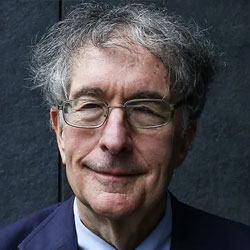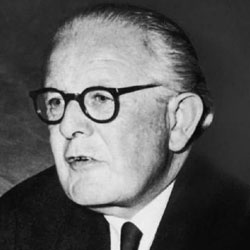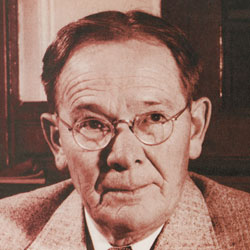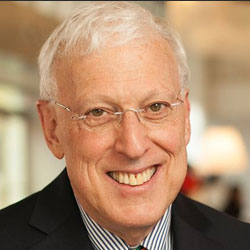
About Alfred Binet
Alfred Binet (1857-1911) was a pioneering French psychologist best known for developing the first practical intelligence test, the Binet-Simon Scale. His groundbreaking work laid the foundation for modern IQ testing and significantly influenced the fields of educational psychology and cognitive development. Binet's innovative approach to measuring intelligence focused on assessing a child's mental age and identifying individual strengths and weaknesses, rather than providing a single, fixed score. His contributions have had a lasting impact on psychological assessment, education, and our understanding of human intelligence.

Interactive Timeline: Key Events in Alfred Binet’s Life and Career
-
1857 - Birth
July 8, 1857Alfred Binet is born in Nice, France.
-
1878 - Education
1878Binet earns a law degree, but his interest soon shifts to psychology and medicine.
-
1880s - Early Career
1880Binet begins working at the Salpêtrière Hospital in Paris under Jean-Martin Charcot, where he studies hypnosis and neurological conditions.
-
1890 - Shift in Focus
1890Disillusioned with Charcot’s theories, Binet shifts his focus to child psychology and cognitive development.
-
1894 - Appointment at Sorbonne
1894Binet is appointed as the director of a psychological laboratory at the Sorbonne, where he conducts research on cognitive abilities.
-
1903 - La Psychologie de l’Enfant
1903Publishes "L’Etude Experimentale de l’Intelligence" (Experimental Study of Intelligence), exploring cognitive development in children.
-
1904 - Commission for Educational Needs
1904Binet is commissioned by the French government to develop a method for identifying children with learning difficulties.
-
1905 - Binet-Simon Scale
1905Binet, along with his colleague Théodore Simon, publishes the first version of the Binet-Simon Scale, the world’s first practical intelligence test.
-
1908 - Revision of Binet-Simon Scale
1908Binet and Simon release a revised version of their intelligence scale, expanding and refining the test items.
-
1911 - Final Contributions
1911Binet continues to refine his intelligence tests and publishes his final works on the subject.
-
1911 - Death
October 18, 1911Alfred Binet passes away in Paris, leaving behind a lasting legacy in the field of psychology.
-
1916 - Posthumous Recognition
1916Lewis Terman at Stanford University adapts the Binet-Simon Scale for use in the United States, creating the Stanford-Binet Intelligence Scales, which become the standard for IQ testing.
Personal Life: Alfred Binet
Alfred Binet was born on July 8, 1857, in Nice, France, to a family of artists. His father, a physician, and his mother, an artist, instilled in him a love for learning and creativity. Binet married Laure Balbiani, the daughter of his mentor and prominent biologist Édouard-Gérard Balbiani. Together, they had two daughters, Madeleine and Alice, who became central to his experimental studies on cognitive development.
Binet’s interests extended beyond psychology and education. He had a profound fascination with the arts, particularly literature and theater. He wrote plays and enjoyed reading, often drawing connections between his literary interests and his psychological theories. This artistic inclination influenced his innovative and imaginative approach to scientific inquiry.
Binet was also an avid chess player. He studied the cognitive processes involved in chess playing and even wrote articles on the psychology of chess, investigating how players of different skill levels think and strategize during a game. This interest in games and problem-solving directly influenced his work on intelligence testing.
Experiments with Daughters: Binet's daughters, Madeleine and Alice, played a crucial role in his research. He often conducted cognitive and behavioral experiments with them, observing their problem-solving processes and intellectual development. These observations were foundational in developing his theories on intelligence and cognitive growth in children.
The Binet-Simon Collaboration: One of the most notable anecdotes about Binet’s professional life is his collaboration with Théodore Simon. Despite their different backgrounds Binet being a psychologist and Simon a physician they formed a productive partnership. Their complementary skills and mutual respect allowed them to develop the groundbreaking Binet-Simon Scale, revolutionizing the field of psychological testing.
Art and Science Fusion: Binet's artistic background often influenced his scientific work. He believed that creativity and scientific inquiry were deeply interconnected. This belief was reflected in his unconventional research methods and his holistic approach to studying intelligence, which considered not just logical reasoning but also creativity and emotional understanding.
Binet’s personal and family life had a profound impact on his professional achievements. His daughters’ involvement in his experiments highlighted the importance of real-world observations in scientific research. His artistic and intellectual curiosity fueled his innovative approach to psychology, making his work accessible and relatable to a broader audience.
Overall, Alfred Binet's personal life was characterized by a deep commitment to both his family and his work. His ability to blend his interests in art, literature, and science enabled him to pioneer new approaches in psychology, leaving a lasting legacy that continues to influence the field today.




